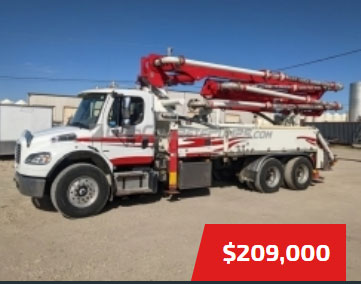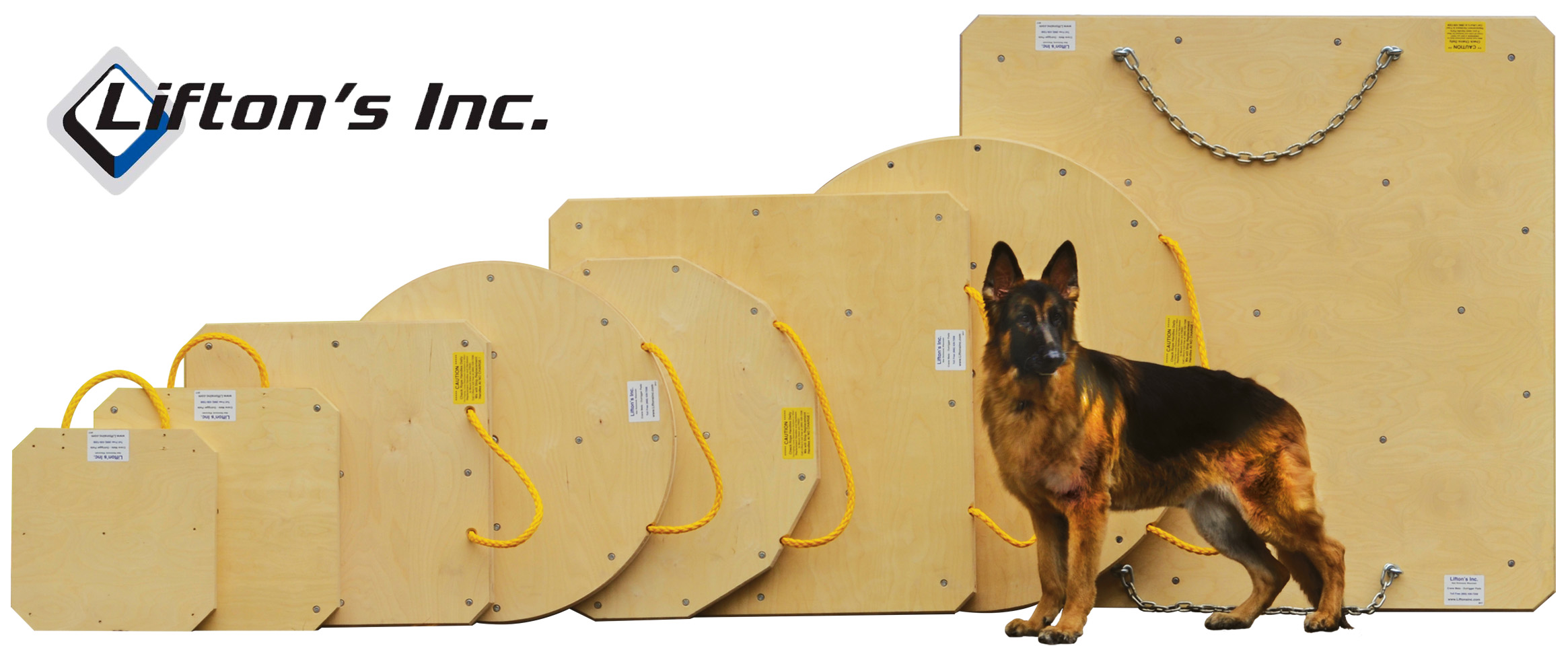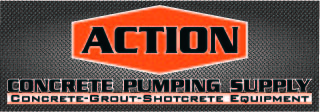| marko | 03-09-2009 | comment profile send pm notify |
|
Concrete pump hirers are hitting out at gaps in safety training When site workers are injured while using concrete pumping machinery, it is up to the hirer to prove they have carried out a risk assessment and their operative has warned them of potential dangers. But concrete pump hirers feel that a lack of training among concrete gangs is causing workers to take unnecessary risks. Pochin Concrete Pumping was recently fined after a worker died and another was injured. The incident happened as a hose kicked when an operator restarted a truck-mounted concrete pump. The company pleaded guilty to failing to provide its operator with a risk assessment and paid £85,000 in fines and court costs. But hirers warn that employers are putting site workers at risk with poor training. Concrete pump firms give their operatives full training in the safe use of machinery, but they say that workers in concrete placing gangs may have little prior knowledge of the specific dangers associated with the plant. Reilly Concrete Pumping general manager Steve Houldsworth says: “We’re increasingly finding on sites that labourers don’t tend to have any initial training at all - certainly not to the extent that we have to train our lads.†Although the onus is on operatives to instruct site workers on the risks associated with working near concrete pumping machinery, Mr. Houldsworth says that site workers can often prove difficult and unreceptive. “They might have been doing things the same way for years, and they get aggressive when told what to do,†he says. “A lot of the problem is sheer ignorance about what they’re dealing with.†Inexperienced labour Mr. Houldsworth says that site workers are often prone to taking risks to get the job done quickly. “The pump is always there before anyone else and is always the last away,†he says. “The other lads want to be on and off as quickly as possible and, if you’re putting rules in front of them, they think you’re holding them up.†Shayler Concrete Pumping managing director Mark Shayler says contractors often cut costs by using inexperienced labour. Although the firm will supply a second operative, or linesman, with larger pumps, contractors often insist on providing their own employees. “We’re caught between the devil and the deep blue sea,†he says. “Site labour is never going to be as good as ours and they don’t have the same training. A customer is quite happy to ask for a boom operator’s certificate, but when their own guy’s involved, they don’t care.†Site workers face risks such as injuries from moving ground pipes, whiplash from placing hoses and concrete splashing into their eyes. “When air comes out of the other end of the pipe, it’s like a mini-cannon going off,†says Mr. Houldsworth. Reilly gives new operatives a week of classroom training, and will spend a month with them before they are allowed to go out by themselves. Some operatives may take eight or nine weeks before their employers are happy with their level of expertise. Operatives learn the basics such as PPE and COSHH as well as their personal responsibilities, carrying out risk assessments, method statements, daily and weekly checks and how the maintenance regime works. Understand the risksMr. Houldsworth says site workers need specific training on the use of concrete pumps to fully understand the risks during pours. “These are not things trainees can learn in one day,†he says. “They might take three to four days just to go through the potential hazards.†Although the placement gang, hose man, banksman and mixer driver have CSCS cards, Mr. Houldsworth says this is not the same for concrete gangs. “Most concrete gangs have never received any type of training to work with this type of machine or seen a risk assessment or method statement,†he says. The Construction Plant Hire Association’s Concrete Pumping Interest Group has provided guidance for hirers and operators on the safe use of their machinery, but it looks like there is still room to train site workers on how to work around them. “Everyone has the same induction when the pump goes on ite,†says Mr. Houldsworth, “but it’s not for the actual product or what they’re doing with it.†|
||
| Bob | 03-09-2009 | reply profile send pm notify |
|
Why were they injured and killed? Was it because they were standing around? Was it because they were standing around in a dangerous place? Was it because they were standing around in a place that could be dangerous under the correct circumstances? Were they standing around in a place that could be dangerous and before the danger was introduced to the scene no warning was given? You decide. If this same bunch was working in a mine and the area was going to be blasted, would the guy lighting the fuse tell them to get the hell away from the area before he lit the fuse, and then, after lighting it he would yell for all to hear; “FIRE IN THE HOLE!†I think so. To assume that anyone has prior knowledge of the danger about to befall him is to assume responsibility for not telling him and acting to his detriment anyway. Now ask me how I really feel. My personal wish is that everyone on every crew had to complete a safety awareness course. This course would be given in his language of choice with applicable ethnic snacks at break time. I also know that crap isn’t likely to happen any time soon. And the safety guy that may or may not know the dangers that the crew faces is probably not there when he needs to be. The job super has hired a crew to do their job, not be baby sat by him. The guy that runs the crew may or may not know or care what is getting ready to happen. The bottom line is that the crew is out there, standing around, waiting for the concrete to be on the slab so they can go to work, finish the job and go home. Who is watching out for them? The operator is when he refuses to turn the pump on, or light a stick of dynamite in the middle of the bunch of guys that are standing around, through no fault of his. He asks them to move, and If and when they do, he starts the pump. And when the super or the foreman or the crew chief or the crew members call the company and bitches and moans about the ‘operator holding up the job’ Tell that guy that the operator - - - - - - Promised the man in the mirror that he wouldn’t hurt anyone today. |
||
| Todd | 03-09-2009 | reply profile send pm notify |
|
Very nice Bob. I would of expected nothing less from you. |
||
| dumpaa | 03-09-2009 | reply profile send pm notify |
|
How about the gangs that dont speak english!!!! Pack up and go home or feed the kids. Sounds like alot of guys are always on the perfect site. We all know that is not the case use your head and do the best you can safely. I am sure these gangs dont know about pumps they do know the boss said get it done!!!!!!
|
||
| Drew AUS | 03-09-2009 | reply profile send pm notify |
|
There are ways around the language things if they dont speak english , get creative use body language grab one of them (in a nice way) show them! They might laugh and call you names and yes you will look like a bit of a dik , but when people get hurt or killed and it was YOU that diddnt act who is going to look like the dik then? |
||
| Safety Mike | 03-09-2009 | reply profile send pm notify |
|
As the Health & Safety Advisor for Pochin Concrete Pumping, I think it only right that some clarity to this story The article (which was published last week in a Neither does it comment that the employer of the deceased was fined the same amount for much the same offence. The wholly unfortunate incident occurred over 5 (five) years ago – it has taken until Feb 2009 for the ( The incident occurred when a momentary blockage (exact reason not established, despite investigation) occurred in the boom pipework, which freed almost immediately, causing the energy to be released through the placing hose, causing it to ‘whip’. The placing gang operative who was guiding the hose was thrown clear, sustaining minor injuries. A second operative (deceased) was also struck by the hose, throwing him to the ground. It was never clearly established whether it was the hose striking him, or indeed a head impact encountered as he fell, that caused the fatal injury.
However, it is accepted 'but for' the blockage occurring/ hose whipping, the incident would not have occurred. The basis of prosecution was centred around the documentation/ risk assessment provided prior to the incident. It was found that this was insufficient, in that it did not specifically address the potential of blockages occurring at EVERY restart of the pump, and therefore, that this information was not available to those undertaking the operation. Since the date of the incident (Dec 2003), Pochin have implemented many changes and improvements, including personnel/ resources, managerial, procedural, training and update briefings, equipment innovation, communications, etc. These have been so successful that the company have attained many awards for their efforts to reduce risks of injury and incident. Pochin were also instrumental in bringing to publication the ‘Code of Practice for the Safe Use of Concrete Pumps’, which has latterly attained full British Standard status. Ongoing initiatives include regular mail-shot updates of safety related material, safety and technical briefings to hirers and clients, and improvements to information availability and advice. HOWEVER the article is generally correct in its view that placing gangs often do lack training and provision of important information specific to the use of concrete pumps. As far as how to get the message across to placing gangs – there lies the most difficult hurdle to overcome. Although much thought and effort continues to be made in providing critical safety information to the employers of the placing gangs, site management, and project planners, the message does not always get effectively passed down the line to those individuals who are at higher levels of risk - the placing gang. Our Pump Operators have been briefed to provide as much education, information and influence at site level as possible, including stopping the pump or delaying restarts, if it is clear that an unsafe condition is present. Where any safety critical situation remains unresolved, they are also required to contact line management for advice and support.
However this is not, and never will be 100% effective for a variety of reasons – many of them out of the direct control of the Pump Operator, or indeed the pumping company. We have accepted though, that however difficult it may seem at times, the ‘education’ process will be an ongoing process, but we cannot, and will not give up on it – in fact none of us involved in concrete pumping should. |
||
| truckshow | 03-09-2009 | reply profile send pm notify |
|
wow, kinda funny this is being brought up right now, I just got back from being at an oil processing/compressor station job for the last week and a half and this type of problem is being addressed in a way I've never been exposed to in the 8 years I've been doing this... My typical day went like this, show up @ 6:30, get my job ticket signed and fill out MY OWN JSA/work permit & get signed off @ the trailer b4 even stepping foot onto the actual job... Every work group leader on the site has to fill this out for his/her job that particular day.. The general contractor now knows exactly what's going to be happening throughout the jobsite each day..It doesn't matter if you do the same thing everyday for a month, you fill this JSA/WorkPermit out each day... Now for the best part, I now get escorted by my contact(the actual subcontractor who hired us) to the the set-up area. I then have to shut my truck off and wait.... The general contractor starts his rounds @ 7:00.. Meanwhile, the entire job site is still at a stand still... You are not to begin a single bit of work until the GC comes to your work area and you and you're coworkers present a JSA(Job Safety Analysis)... In my case, It was me JSA#1, the Laborors spreading and compacting the backfill JSA#2, the excavation company's operators JSA#3, and finally the compaction tester JSA#4... This process can take anywhere from a couple of minutes to about a half hour...the more JSA's present the longer, etc... There are 2 points to make here... #1--- your particular area of the jobsite does not start its day until this is complete... There were days where we didn't start placing material until 9:00, b/c we were the last work area to be analyzed by the GC.. On this particular job there were about 6 different groups or areas... #2--- Nobody is allowed to work in your area until they have signed your JSA, and you have educated them on the process and safety guidelines to what is happening in that area of the jobsite (now remember, in my area, there were 4 JSA's, now if @ 11:30 I get three new laborors and they were not part of the morning JSA, my area gets shut down until me and the other 3 work leaders educate these three new guys on the 4 JSA's that are present...) Now if you have gotten this far, you're probably wondering what the &*LL is going on at that place, right? Well, it's a big global company and they are leading the way in jobsite safety and awareness... They don't care how long it takes.... They don't care much for timelines or deadlines... They do care about the safety of each and every one on that jobsite... These seemed like drastic measures for me at first... I was very frustrated with my surroundings and how things went the first couple of days, but ya know what, it grew on me.... I actually enjoyed presenting my JSA and at times it was to about 20 or so people... I enjoyed listening to the other JSA's as well... I learned a lot about other work groups and the dangers that were present, and others learned of our dangers as pump and belt operators... Having to go through this everyday, does not allow for complacency among us, because you are required to acknowledge your hazards everyday, every job.....Having to do this everyday, provided me with more pride in what I do and make people have a sense of accountability. It makes us all realize that we are all just a spoke in the wheel and it doesn't go round and round unless we all are on the same page working as a team.... I know this is getting a bit mushy but it's true... I think this is what the next generation of the construction industry is coming to.... Focus on Hazard and Safety is just beginning and I think more and more high end or high profile jobs will begin to be like this in the next five to ten years.... |
||
| Bob | 03-09-2009 | reply profile send pm notify |
|
The larger companies are larger in part because they are smarter. They have come to know that safety training and compliance is a cost of doing business. The alternative is spending even more money defending the untenable position of NOT doing safety training and compliance. The larger the job, the more concentration there is on that safety training and compliance. On those jobs, many of which last for several years, there are no (0) accidents. Being safe is a situation that is only achievable when you are informed of what is NOT safe, and where the danger is likely to come from. You are responsible to make sure that your co-workers know what can and may happen while you are plying your craft. It is your duty to inform – it is your duty to warn. The original story that started this post could have been deleted. The reason I left it up was just because of my hope that the preceding posts would be made. I know that Safety Mike is now onboard with Pochin Concrete Pumping, and that this was an old issue not indicative of the way that they operate today. The rules are changing everywhere. When Truckshow goes to a non compliant job, knowing what he now knows to be the correct way to go about real safety training and compliance, he is going to feel cheated, short changed and wary about his co-workers actions; I don’t blame him a bit. Anyone that thinks this trend is going to change needs to not buy any lottery tickets because he is absolutely wrong. Safety is a part of our future, a big part. Those companies that get this message are going to be the future winners. They are going to operate at a lower cost than the other guy. They are going to be able to spend their time growing their business, not defending it. Read your safety material and then read it again Believe it. It is there for you not to spite you. If you don’t believe me ask Safety Mike and Truckshow. You have a duty to inform You have a duty to warn Do your duty |
||
| murf | 03-09-2009 | reply profile send pm notify |
|
Safety mike- Did this guy from cn ask you for a statement? The aricle is true but omits the real truth that you do have the best safety set up of any uk pumping co and have done for many years prior to this accident. He was told this but failed to print which I/we think is unfair.
|
||
| Bob | 03-09-2009 | reply profile send pm notify |
|
I don't think Safety Mike would let that happen today. History reminds us all of why we made the changes ;~) |
||
| Safety Mike | 03-09-2009 | reply profile send pm notify |
|
Murf NO, (dissapointingly and strangely) CN did not ask us for any quote or input to the article - and we had prepared an Information Release/ Press Statement about the incident/ proceedings too! Thanks for the vote of confidence though..... |
||
| TooTall | 03-10-2009 | reply profile send pm notify |
|
"Clearing the area before re starting the pump" has been a common safety policy for several years now because of accidents like this here in the States. Even the most experienced laborers dont pump and pour concrete every single day like we do. Some simple do's and dont's that we might view as common knowledge or common sense are never taught to laborers. Like the dangers of hose whipping, kinking hose etc. Sadly the only time laborers learn these things are when they see it happen and suffer the result. Frequent/weekly SAFETY MEETINGS to discuss the upcoming work at hand would better educate workers and laborers to the dangers involved with concrete pumps. Most of them only seem to be worried about not standing under the boom when there are alot more dangers they need to be aware of. As operators we have many responsibilities and educating the supplied labor should not be one of them. Even though alot of us dont mind giving how to lessons, Five minutes after priming the pump is not the best time for a safety meeting! |
||
| marko | 03-10-2009 | reply profile send pm notify |
|
Regarding the concrete 'gang' member fatality : There was only a very small article in the 'construction news regarding the outcome, and a reporter got independant views. Pochin were not consulted, yet if the article was for promotion then i'm sure they would not have joined the discussion. The same goes for 'safety mick'. Yet it just shows how dangerous our industry can be and our Prayers and thoughts go out to the family of the deceased. As ever this shows that concrete pumps are one of the most dangerous pieces of equipment on the job site. If not THE most dangerous. |
||
| Weave | 03-10-2009 | reply profile send pm notify |
|
That's strange. About two weeks ago one of our operaters had to pump for a class at the labours hall. Which is great it help lessen the deer in the headlight looks you sometimes get and give them a functional understanding of what's going on before they hit a jobsite. |
||
| truckshow | 03-10-2009 | reply profile send pm notify |
|
wow, THAT'S EXACTLY what we need to see more often.... I wonder how or you was responsible for setting that up Weave..... I think its great... Things like that should be at least an annual thing!!!!
|
||
| TooTall | 03-10-2009 | reply profile send pm notify |
|
Yeah that is great. I'm also glad to hear it involved a qualified operator with hands on exp. All too often safety meetings are conducted by people with no hands on field experience. |
||
| thomas | 03-11-2009 | reply profile send pm notify |
|
LMAO @ "applicable ethnic snacks!." |
||
| twix | 03-11-2009 | reply profile send pm notify |
|
nice one marko.i say marko for prime minister.marko,marko,marko,marko,marko |
||
| Bob | 03-11-2009 | reply profile send pm notify |
|
Excavators are the real "bad" boys on a job. |
||
| twix | 03-11-2009 | reply profile send pm notify |
|
hey bob i disagree their man. |
||
| Bob | 03-11-2009 | reply profile send pm notify |
|
Good. Have you done any research or is this just your opinion? The FACT is that the most dangerous thing on a construction site is GRAVITY. Yup, gravity. Falls are the cause of more construction accidents than any other. Concrete pumps are so far down on the list as to not even matter............ unless you are involved with one having an accident. So IF you want to do just one thing to make yourself safer while on the job, watch out where you walk and where you are planning to walk. Stay off of scaffolds, stay off of ladders. As a pumper you should never, no matter what ever..... did I mention NEVER get on a scaffold. Your time spent on ladders should be exceeded by the time you spend looking at them before you use them. Look for loose rungs, ladders that are too short for the APPLICATION, ladders that are not tied off, homemade ladders of questionable origin and construction. Ladders must be climbed using the three point rule; which precludes carrying ANYTHING up or down a ladder. Scaffolds........fagetaboutit! Excavators was picked out of the air as a means of generating some interest for what is really dangerous. Thanks, Bob ;~) |
||
| twix | 03-11-2009 | reply profile send pm notify |
|
bob you are a leg end i should know better.you are number 1.your posts are a pleasure to read. |
||
| thomas | 03-12-2009 | reply profile send pm notify |
|
5 years ago I was working on a house when a guy pulled up with a rig towing a bulldozer. He slammed on the brakes and climbed out the cab with beer bottles in each hand and yelled "Hey I got ya best friend by the neck!" Turns out that he was a Tunnel Rat in Vietnam. No disrespect to veterans, but he was a bit loose. This was at 3pm. We left an hour or so later and he stayed to grade the driveway. He graded the driveway and managed to knock a good size piece of brickwork loose. The homeowner called him the next day and the equipment operator yelled "What are you talking about? I don't even remember GOING to your house!" Be careful out there. You never know who you're dealing with. |
||




















.jpg)
.gif)

.jpg)









.jpg)








